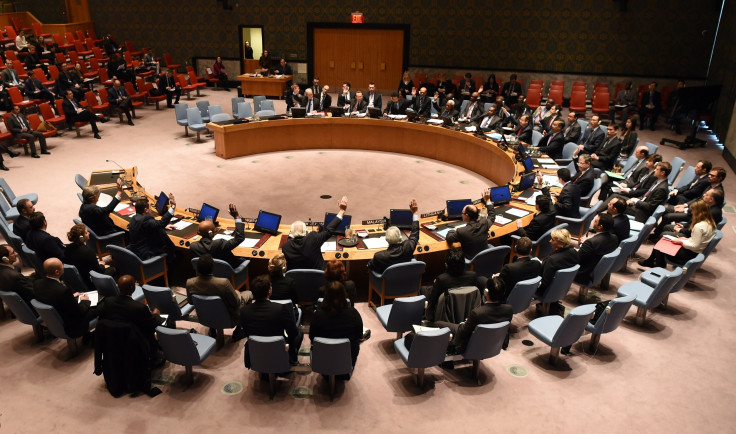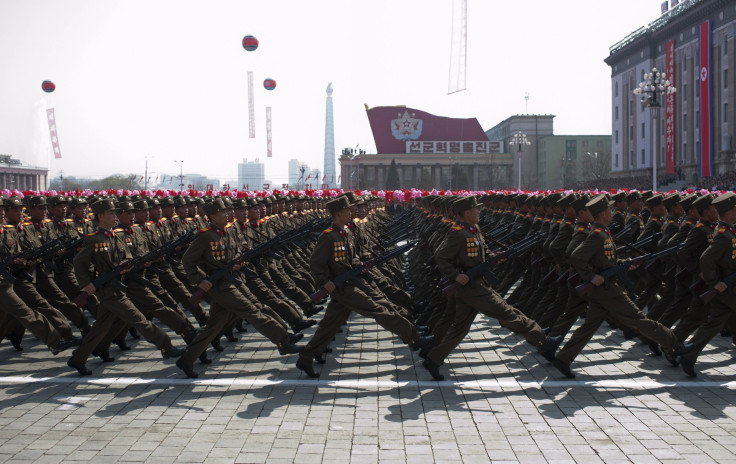North Korea Nuclear Weapons: UN Security Council Passes New Sanctions Against Kim Jong Un Regime

The United Nations Security Council adopted tough sanctions Wednesday against North Korea that aim to undermine the reclusive country’s ability to continue its nuclear weapons program. The resolution, which has been negotiated for weeks by U.S. and Chinese diplomats, calls for a ban on trading weapons, inspecting all cargo coming in and out of the country and levying fresh sanctions against certain North Korean individuals.
The U.N.'s action comes nearly two months after Pyongyang claimed to have tested a nuclear weapon at an underground facility in the northeastern part of the country, near the border with China. Previous sanctions attempted, unsuccessfully, to disable the Hermit Kingdom’s ability to develop its small nuclear weapons program.
U.S. Secretary of State John Kerry said in a tweet that the sanctions against the Kim Jong Un-led regime were the toughest that North Korea has had in more than 20 years.

Today’s #UNSC resolution contains toughest sanctions in >20 yrs. Clear statement that the world will not accept #DPRK as a nuclear state.
— John Kerry (@JohnKerry) March 2, 2016
As part of the negotiations, which began last month when Chinese foreign minister Wang Yi met with President Obama behind closed doors in the White House, Beijing insisted that the purpose of sanctions should be to bring Pyongyang back to the negotiating table and not solely to punish it. Beijing was also keen to ensure that the lives of ordinary North Koreans would not be hurt further by the sanctions.
However, there are fears that China will fail to enforce the sanctions given its relatively close relationship with Pyongyang. Historically, the Council has not punished countries that have aided North Korea or failed to enforce sanctions.
One of the major difficulties for China will be monitoring it 870-mile border with North Korea, where an extensive network of trade and smuggling takes place. As well as providing much needed goods for the largely impoverished people in North Korea, missile parts and other weapons are pouring over the border and are being used by the regime to further its various weapons programs.
South Korean President Park Geun-hye , who had been calling for actions against its northern neighbor since she took power more than two years ago, said that the resolution was the “strongest and most effective sanctions ever.”
And experts in the region agreed. “It’s comprehensive, symbolic and also strong,” said Yang Moo-jin, a professor at the University of North Korean Studies in Seoul, to the New York Times Wednesday. “The mandatory cargo inspections and the limits on minerals exports could be particularly painful for the North Koreans.”
© Copyright IBTimes 2024. All rights reserved.





















